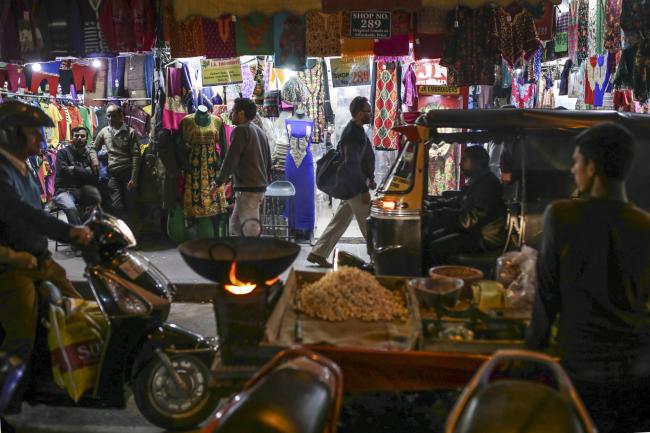(Bloomberg) -- Bulls will retain the upper hand in emerging markets in 2018, but some assets could be in for a reality check.
Bonds and equities in developing countries will continue to streak ahead, outpacing their developed-nation peers into next year, according to a Bloomberg survey of 20 investors, traders and strategists. Currencies, however, may struggle to stay in front. The survey was conducted Dec. 5-14.
And while the Federal Reserve’s actions will remain key in determining the fate of what has been the strongest equity rally for emerging-market stocks in eight years, geopolitical risks will be less of a focus as investors zero in on Donald Trump and the outlook for the world’s second-largest economy: China.
“The environment for emerging markets was great in 2017 with the Goldilocks factors of economic growth and low inflation in industrialized countries,” said Hideo Shimomura, chief fund manager in Tokyo at Mitsubishi UFJ Kokusai Asset Management Co., which oversees the equivalent of $114 billion. “The EM rally we saw this year will probably extend into 2018, but after a period of strong growth and low inflation, some adjustment will be inevitable.”
Investor darlings in 2017 thanks to their high yields and buoyant growth prospects, emerging markets have weathered Trump’s protectionist rhetoric and a swathe of geopolitical brush fires -- from the Middle East to the Korean peninsula.
But while stocks and currencies in developing nations are on track for their best year since 2009, investors may become more selective in 2018 as headwinds like Fed tightening weaken the appeal of emerging markets.
Consistent with a survey in October, market watchers continue to see the Fed and President Trump’s policy moves to be key for developing-country assets in the new year.
What happens with China -- where authorities are waging a battle against debt and President Xi Jinping is cementing his power -- has edged up in the rankings.
Check out the October survey results here.
Going forward, Mexico’s peso and bond market as well as Brazilian equities are among the most-favored emerging-market assets, while Turkey’s lira and stocks ranked low given the country’s persistent political uncertainty.
The lira, on track to become one of the worst emerging-market currency performers this year, will remain in the doldrums in 2018. The currency plunged to a record low as President Recep Tayyip Erdogan criticized the central bank in November, saying it was on the “wrong path” in tackling soaring inflation.
But in general, the stars will continue to align from a macroeconomic perspective, with global growth expected to be steady and inflation subdued, said Colin Harte, a London-based fund manager and strategist for multi-asset solutions at BNP Paribas (PA:BNPP) Asset Management, which oversaw the equivalent of $673 billion at the end of September.
“This Goldilocks environment will be one where central banks will continue to pursue accommodative monetary policy and follow their existing reaction functions,” he said.
Survey respondents were also asked about the inflation and general economic outlooks for 11 developing nations.
NOTE: Respondents in the survey were from Bank of Ayudhya Pcl, BlackRock Inc (NYSE:BLK)., BNP Paribas Asset Management, Credit Agricole (PA:CAGR), Dai-ichi Life Research Institute Inc., Daiwa SB Investments Ltd., Deutsche Bank (DE:DBKGn) Wealth Management, DuPont (NYSE:DWDP) Capital Management, FPG Securities Co., Invesco Ltd., Kasikornbank Pcl, Krung Thai Bank Pcl, Mitsubishi UFJ Kokusai Asset Management Co., Mizuho Bank Ltd., NBC Financial Markets Asia Ltd., Neuberger Berman, Nomura Asset Management Co., Old Mutual Plc (LON:OML), SBI Securities Co., Sumitomo Mitsui Trust Asset Management Co.
To contact Bloomberg News staff for this story: Yumi Teso in Bangkok at yteso1@bloomberg.net, Hannah Dormido in Hong Kong at hdormido@bloomberg.net, Lilian Karunungan in Singapore at lkarunungan@bloomberg.net, Aline Oyamada in Sao Paulo at aoyamada3@bloomberg.net, Selcuk Gokoluk in London at sgokoluk@bloomberg.net.
To contact the editors responsible for this story: Tomoko Yamazaki at tyamazaki@bloomberg.net, Justin Carrigan at jcarrigan@bloomberg.net, Emma O'Brien
©2017 Bloomberg L.P.
